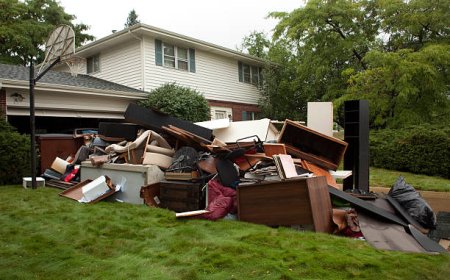Public Notary Services for Power of Attorney Forms

Power of Attorney (POA) is a critical legal document that gives someone the authority to act on another person's behalf in legal, medical, or financial matters. However, for a Power of Attorney to be considered valid and enforceable, it often must be notarized. Thats where public notary services come in. These professionals ensure that POA forms are signed willingly, with full understanding, and without coercion. If youre looking to notarize a Power of Attorney, understanding how public notary services work is key to protecting your legal rights and making your document legally binding.
Why Notarizing a Power of Attorney Is Essential
A notarized Power of Attorney holds much more legal weight than one that isn't. Without proper notarization, financial institutions, hospitals, or legal authorities may reject the document. Public notary services act as impartial witnesses, confirming the identity of all signers and verifying that the document is being signed voluntarily and competently.
Legal Recognition Across States
Each state in the U.S. has its own notary requirements. Some require witnesses along with a notary seal, while others only need a notarial acknowledgment. Using professional public notary services ensures that your POA form meets the legal requirements of your state, which is crucial for smooth execution of responsibilities.
Types of Power of Attorney That Need Public Notary Services
Not all Power of Attorney forms are the same. Here are some of the most common types that require notarization:
Durable Power of Attorney
This remains valid even if the person becomes mentally incapacitated. Its especially important in long-term healthcare planning and almost always needs to be notarized by public notary services to avoid future legal disputes.
Medical Power of Attorney
Used to authorize someone to make healthcare decisions if youre unable to. Hospitals typically require notarized copies to honor these instructions.
Financial Power of Attorney
Gives another person authority over financial decisions. Banks and financial institutions generally require notarized versions to grant access to accounts.
Limited or Special Power of Attorney
These forms grant authority for a specific task and time period. While not always legally required to be notarized, many institutions still prefer notarized versions to prevent fraud.
How to Prepare for Notarizing Your Power of Attorney
Before you meet with a notary, there are several steps to take to ensure the process goes smoothly.
Step 1: Fill Out the Document, But Dont Sign Yet
Most public notary services will not accept pre-signed documents. You should complete the Power of Attorney form but wait to sign it in front of the notary.
Step 2: Bring Valid Identification
A government-issued photo ID like a passport or drivers license is typically required. The notary will use this to verify your identity and make sure the signing is legitimate.
Step 3: Understand What Youre Signing
Public notaries are trained to detect coercion or confusion. If you appear unsure or pressured, they may refuse to notarize the document. Be clear and confident about what your Power of Attorney means.
Where to Find Trusted Public Notary Services
You have several options when it comes to finding reliable public notary services for your Power of Attorney forms.
Local Banks and Credit Unions
Most offer free or low-cost notary services to their customers. Call ahead to confirm the notary is available and familiar with POA documents.
Law Offices and Legal Clinics
These often have experienced notaries on-site. They may charge a fee but can also provide legal guidance if needed.
Online Notary Platforms
Remote online notarization is growing in popularity. These platforms let you connect with licensed public notary services via video call, which is convenient if you're unable to travel.
Mobile Notary Services
If you or your agent cant leave your home or facility, mobile notaries come to you. They are ideal for elderly clients or those in healthcare settings.
What to Expect During the Notarization Process
Understanding what happens during the notarization helps avoid delays or rejections.
Identity Verification
The notary will check your ID and ensure youre the correct person signing the form.
Document Review
While they dont provide legal advice, notaries will scan the document for blank spaces or errors that could invalidate the form.
Witnesses (If Required)
Some states require witnesses in addition to the notary. Make sure to bring them with you if needed.
Signing and Notarization
Youll sign in front of the notary, who will then stamp and sign the form, adding their notarial certificate.
Common Mistakes to Avoid When Notarizing POA Forms
Making errors during notarization can invalidate your Power of Attorney, so here are key pitfalls to watch for:
Signing Before Meeting the Notary
Many notaries will reject documents signed in advance, as they need to witness the actual signing.
Incorrect or Missing Information
Leaving blank fields can make a POA unusable. Double-check all sections before your appointment.
Using an Unqualified Notary
Ensure the notary is licensed in your state and authorized to perform the notarization. Using an unqualified notary may result in legal challenges.
Costs Associated with Public Notary Services
The cost of public notary services varies depending on your location and the type of service. Heres a general breakdown:
-
Standard In-Person Notary: $5$15 per signature
-
Mobile Notary: $25$75, plus mileage fees
-
Online Notary Platforms: $25$40 per session
-
Legal Office or Law Firm: May charge higher but can provide added legal support
Always confirm the cost upfront and ask if multiple documents can be notarized in one session for a reduced rate.
Extra Tips to Keep Your Power of Attorney Safe and Accessible
Once your Power of Attorney form is notarized, take steps to store and share it securely:
Make Certified Copies
Many institutions require a certified copy instead of the original. Ask the notary or legal office about certified duplication.
Inform All Relevant Parties
Let your financial institution, healthcare provider, or lawyer know that a POA is in place and who holds that authority.
Store in a Safe Location
Keep the original in a fireproof safe or a secure file. Also, share a copy with the agent (the person acting on your behalf).
Final Thoughts on Navigating Notarization for POA Forms
Finding and using reliable public notary services for your Power of Attorney documents is not just a legal formalityits a safeguard for your rights and your future. Whether you're planning for aging, travel, or unexpected emergencies, notarizing your POA with a trusted service gives your document the legal weight it needs to stand up in court or at the hospital.





























